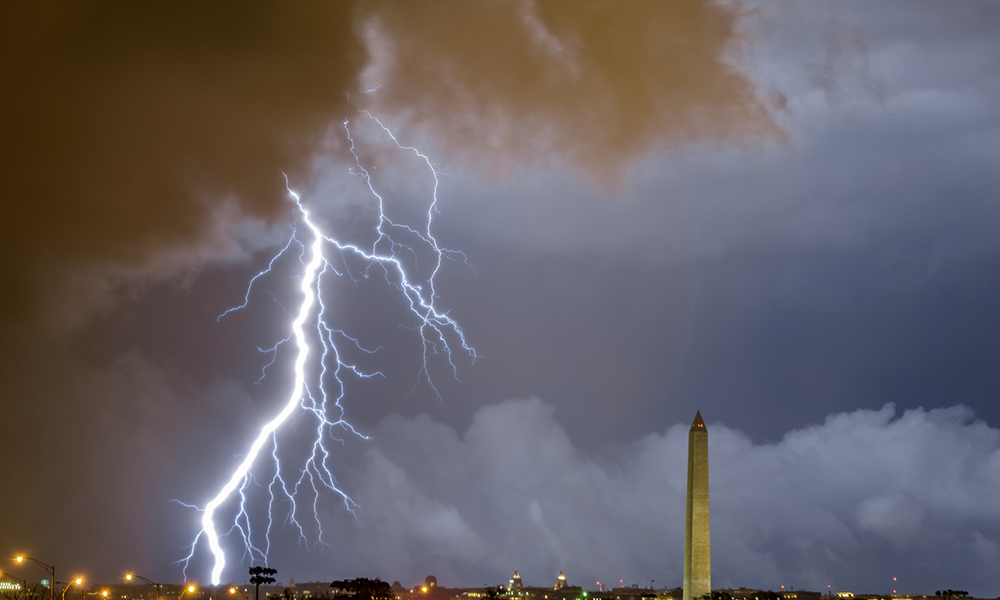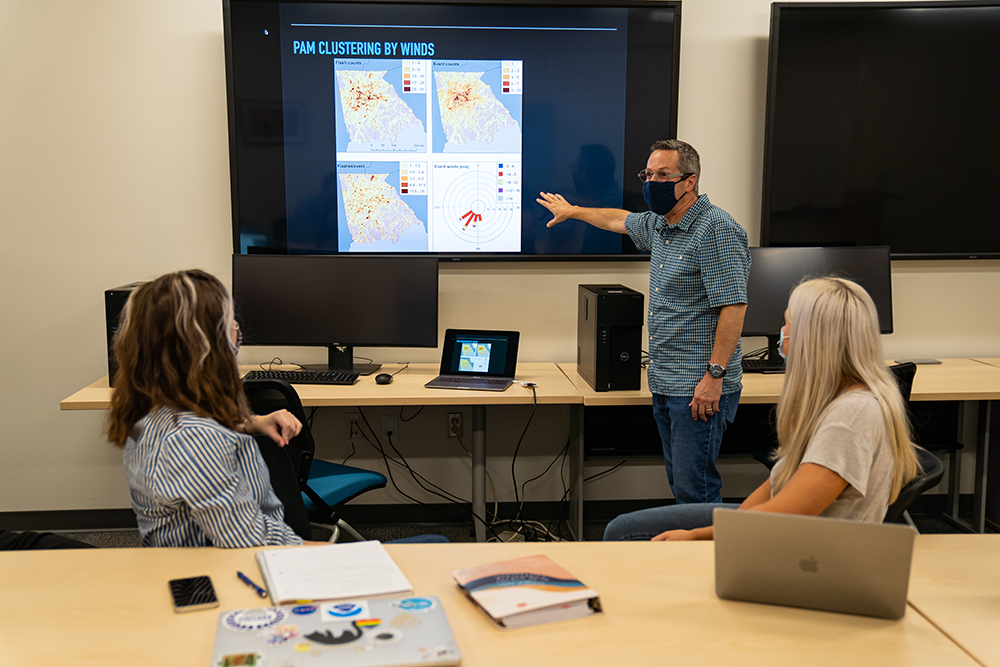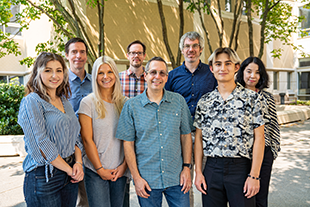Award-winning JMU Geography program earns NSF support for lightning study
JMU News
On the heels of being recognized as the nation’s top undergraduate geography program, a group of JMU researchers from that program are getting ready to begin a two-year lightning study supported by nearly $450,000 from the National Science Foundation.
The recognition as the top undergraduate geography program comes from The American Association of Geographers, the preeminent geography organization in the country, said Mace Bentley, a professor in the program and also the lead researcher for the lightning study.
The AAG recognized the JMU program, which resides in the School of Integrated Sciences, as one of two recipients of the 2021 Award for Bachelors’ Program Excellence in Geography. The other award went to Kennesaw State University in Georgia.
“I think it’s fantastic, being nationally recognized,” said Bentley, who is director of the program. “JMU Geography is an outstanding program that is dedicated to effective teaching, scholarship and serving our world. Our achievement is testament to our excellent faculty and students who embody this vision.”
Bentley said departments vying for the AAG award had to go through four rounds of competition, providing various amounts of documentation and facing reviews by faculty from across the country.
In a letter announcing the award, the AAG stated the JMU program "has made a strong commitment to high-impact teaching practices that engage undergraduate students, including field experiences in water resources, advanced cultural geography, and biogeography; community engagement and service-learning opportunities both locally and abroad; and project-based instruction in cooperation with partners such as Shenandoah National Park."
The lightning study, which will look into human impacts on the frequency and intensity of lightning, is yet another opportunity for undergraduates to get research experience that will prepare them for graduate school or careers. Bentley said the experience they get will be on par with what master’s and doctoral students would do at major research universities.
“We hope to better understand some of the ingredients in thunderstorm formation that have not traditionally been accounted for," Bentley said, noting that meteorologists focus on thermodynamic instability of the atmosphere. Bentley’s team will look into what effect aerosols, tiny particles in the air, some the result of automobile and factory emissions, play.

There is building evidence globally, Bentley said, that air pollution and other aerosols are getting drawn into thunderstorm updrafts and are changing lightning dynamics and perhaps the overall intensity of the storms.
The research will begin by combing through existing data from Washington, D.C., Kansas City, Missouri, and Salt Lake City, Utah, and building databases to observe the lightning distribution. "Each one of those is geographically situated in a very different atmospheric environment," Bentley said. "We will do a compare and contrast of those."
Bentley said lightning is not one of the conditions the National Weather Service uses when classifying storms as severe. The NWS defines a severe thunderstorm as one that has 3/4 -inch or larger hail, 55 mph winds or greater or could potentially produce a tornado. However, lightning is dangerous too and the research could lead to better predictions of thunderstorm intensity.

The $449,955 grant includes funding to pay 12 student researchers. Students can also earn academic credit for the work they do. In addition to geography majors, Bentley said he hopes to include students majoring in computer science and integrated science and technology.
"They’re going to learn about how other disciplines approach these problems, as interdisciplinary research is critical in understanding complex relationships," Bentley said. "Sometimes people outside your specific discipline come up with the most novel idea to solve the problem. They don’t have the blinders on that you tend to get into when you become so focused in one area."
Bentley will be joined by four researchers on the project, Tobias Gerken, Henry Way, Dudley Bonsal and Zhuojun Duan. Way and Bonsal are with Bentley in the geographic science program, Duan is in computer science and Gerken is in integrated science and technology. They are all faculty within the College of Integrated Science and Engineering.
# # #
Media contact: Eric Gorton, gortonej@jmu.edu, 540-908-1760
